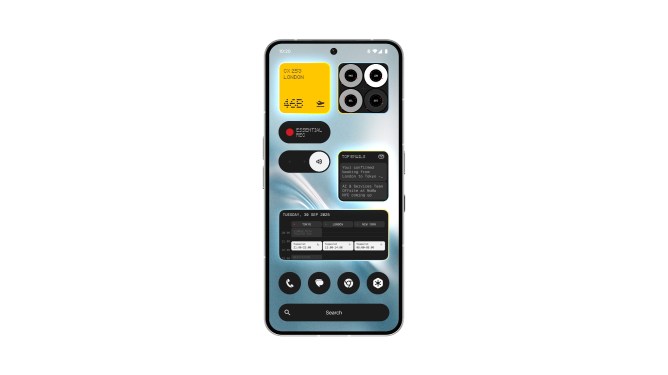AI-powered app development is rapidly growing, and the smartphone maker Nothing is aiming to capitalize on this trend. The company recently revealed Playground, an AI tool that allows users to create applications using simple text prompts and deploy them to a platform called Essential Apps.
Currently, Playground enables users to build widgets from scratch. These can include a flight tracker, a summary of your next meeting, or a virtual pet. You can create these using text prompts or customize an existing app on the Essential Apps platform to suit your needs. For more technical users, there is the option to modify the underlying code to fine-tune how an application functions.
Nothing states that it is not yet permitting developers to build full-screen applications, as the underlying technology is not considered mature enough for that step.
This launch of vibe-coding comes just weeks after Nothing raised two hundred million dollars in a funding round led by Tiger Global. At that time, Nothing CEO Carl Pei said the company intended to build an operating system with AI-powered features and develop new AI-centric devices.
In a recent conversation, Pei expressed that smartphone makers are often reluctant to change their software. He said that it has always bothered him that software is not improving faster, suggesting that many companies follow the safer path set by larger players like Apple. Pei believes software iteration is very slow. He added that with breakthroughs in artificial intelligence, operating systems will change and become more personal. He noted that our devices have a lot of context about us, but that information is not being leveraged effectively right now.
So far, Nothing has only launched one AI-enabled application called Essential Space. This app lets users share screenshots, record voice notes, and get transcriptions for meetings. It is worth noting that most modern smartphone operating systems can already perform these tasks and more. If they cannot, users are free to install other AI applications from various app stores.
Nothing has established a name for itself as a smartphone manufacturer, but it remains a small company compared to giants like Google, Huawei, Oppo, Xiaomi, OnePlus, Apple, and Samsung. According to data from the analytics firm IDC, the company holds less than one percent of the worldwide smartphone market.
However, Pei feels Nothing’s position is advantageous. He has previously stated that the company wants to build hardware specifically designed for using AI. He believes that if they can succeed with smartphones, creating hardware for specific use cases would become easier.
Vibe coding is a promising concept on paper, but so far, applications that have tried to offer similar functionality on smartphones have failed to gain significant traction. Data from the analytics firm AppFigures shows this is mostly due to security and maintenance concerns. Pei acknowledged these challenges and stated that maintaining security while allowing developers to create applications will be crucial moving forward. He emphasized that with millions of users on their devices, whatever they ship must be easy to use and hard to make a mistake with.
At the moment, the company is not charging for these AI tools, and a paid tier does not appear to be in development. Pei mentioned that the current focus is on building a vibrant community around the new tool and recognizing people who make valuable contributions.

